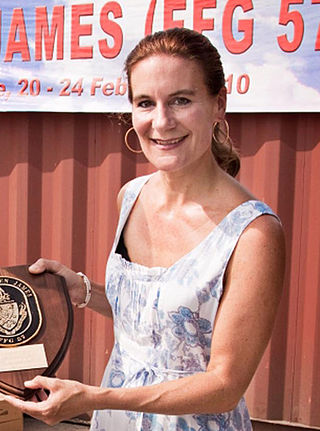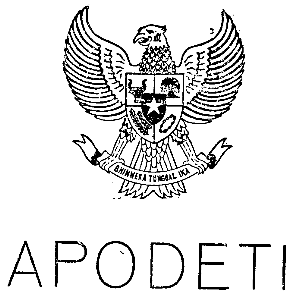Related Research Articles

The national flag of Timor-Leste consists of a red field with the black isosceles triangle based on the hoist-side bearing a white five-pointed star in the center superimposed on the larger yellow triangle, also based on the hoist-side, that extends to the center of the flag.

Francisco Xavier do Amaral was an East Timorese politician. A founder of the Frente Revolucionária de Timor Leste Independente (Fretilin), Amaral was sworn in as the first President of East Timor when the country, then a Portuguese colony, made a unilateral declaration of independence on 28 November 1975. He was a member of the National Parliament for the Timorese Social Democratic Association from 2001 until his death in 2012. Amaral was also known as "Abo (Grandfather) Xavier", a term of endearment, by East Timorese.

The Timorese Democratic Union is a conservative political party in East Timor. It was the first party to be established in the country on May 11, 1974, following the Carnation Revolution in Portugal.

The Association of Timorese Heroes, sometimes known as Sons of the Mountain Warriors, is a culturally conservative political party in East Timor. In 2007, KOTA said it had 30,000 members.

The Socialist Party of Timor is a Marxist–Leninist political party in East Timor.

The União Nacional dos Escuteiros de Timor-Leste is the national Scouting organization of East Timor. It was founded on December 2, 2005 through the merger of the Corpo de Escuteiros Católicos em Timor-Leste and of Timor-Leste Scouting. The organization is a member of the Comunidade do Escutismo Lusófono. It became a member of the World Organization of the Scout Movement on 22 June 2017.

Kirsty Sword Gusmão, is an Australian-East Timorese activist who served as the First Lady of East Timor from 2002 until 2007. She was married to Xanana Gusmão, former prime minister and president of East Timor, though they separated in 2015. She is the founding director of the Alola Foundation, which seeks to improve the lives of women in Timor-Leste, a nation with one of the world's lowest per capita GDPs.

Nicolau dos Reis Lobato was an East Timorese politician who is considered the national hero of the country.

The Timorese Popular Democratic Association was a political party in East Timor established in 1974, which advocated for integration into Indonesia. Along with another East Timor party, the Timorese Democratic Union (UDT), it signed the Balibo Declaration in 1975 calling for Indonesia to annex the region. The party led the Provisional Government of East Timor that was formed following the Indonesian invasion of East Timor later that year. Since 2000, the party used the suffix Pro-Referendo (Pro-referendum). A renaming to Partido Democrata Liberal was considered. The party is said to have been dissolved.

Bilateral relations exist between Australia and East Timor. The two countries are near neighbours with close political and trade ties. East Timor, the youngest and one of the poorest countries in Asia, lies about 610 kilometres northwest of the Australian city of Darwin. Australia has played a prominent role in the young republic's history.

Adaljiza Albertina Xavier Reis Magno is an East Timorese politician and diplomat, and a member of the Fretilin political party.
Rosa Filomena "Muki" Cardoso Bonaparte Soares was an East Timorese revolutionary and women's rights activist. Born in what was then Portuguese Timor, in 1973 she won a scholarship to study in Portugal, where she joined the Casa dos Timores and became involved in Marxist and anti-colonial politics. Returning to Timor in late 1974, she was a founding member of Fretilin and served on the party's central committee. Known for her intensity and small figure, she was called "the petite revolutionary", "Rosa Luxemburg", and to her Fretilin comrades, "Muki".

Dionísio da Costa Babo Soares is an East Timorese politician, and a member of the National Congress for Timorese Reconstruction (CNRT). From June 2018 to May 2020, he was the Minister for Foreign Affairs and Cooperation, under the VIII Constitutional Government of East Timor; he had earlier served as Minister of State, Coordinator of State Administration Affairs and Justice, Minister of State Administration, and Minister of Justice.
Ema Nudar Umanu is a 2018 East Timorese experimental fantasy film written and directed by Thomas Henning, an Australian filmmaker, and Jonas Rusumalay Diaz, who is also its producer. It is the first feature film of the film collective Malkriadu Cinema, and is among the first feature films to be produced by East Timor, after Beatriz's War and Abdul & José. The film premiered at the Melbourne International Film Festival on 16 August 2018.

José Maria dos Reis Costa is an East Timorese politician, and a member of the Fretilin political party.

Nívea Elisabeth C. dos Reis, known professionally as Bety Reis, is an East Timorese actress, director and film producer.
Anarchism in East Timor has its roots in the country's history as a penal colony, when many anarchists were deported there. The movement eventually evolved into an anti-colonial struggle against succeeding occupying powers: first the Portuguese Empire, then the Japanese Empire and the Indonesian New Order, before the country finally achieved independence in 2002.

The Timor-Leste national badminton team represents East Timor in international badminton competitions. While badminton is not a popular sport in East Timor, the nation has competed in tournaments such as the Asian Games and the BWF World Junior Championships.

The Democratic Republic of East Timor, was a state that was unilaterally proclaimed on the territory of present-day East Timor on 28 November 1975 by Fretilin prior to the Indonesian invasion of East Timor nine days later on 7 December 1975.
References
- 1 2 3 "Fresh start for East Timor's film scene". Sydney Morning Herald. 2 October 2013. Retrieved 3 October 2013.
- ↑ "Beatriz's War". The Film Catalogue. Archived from the original on 29 October 2016. Retrieved 3 October 2013.
- ↑ "Beatriz's War". Adelaide Film Festival. Archived from the original on 3 November 2013. Retrieved 3 October 2013.
- ↑ "Beatriz's War Review".
- 1 2 Wilson, Jake (1 July 2014). "Beatriz's War review: East Timor's first feature shows a past most haunted". The Sydney Morning Herald. Retrieved 26 August 2024.
- 1 2 Cockrell, Eddie (29 October 2013). "Beatriz's War Review". SBS What's On. Retrieved 26 August 2024.
- 1 2 3 4 5 Hearman, Vannessa (5 September 2018). "Screening East Timorese Women and History in Timor-Leste's Beatriz's War". Gender & History. 30 (3) – via Curtin University.
- ↑ Jusuf, Windu (21 December 2014). "'Beatriz's War': Timor Leste's first feature film". The Jakarta Post. Retrieved 26 August 2024.
- ↑ Frew, Wendy (30 September 2012). "Love story amid blood-soaked birth of nation". The Sydney Morning Herald. Retrieved 26 August 2024.
- ↑ "Beatriz's War". IMDb. Retrieved 26 August 2024.